Harmony in Action
Press Release: Closing Ceremony YFP2
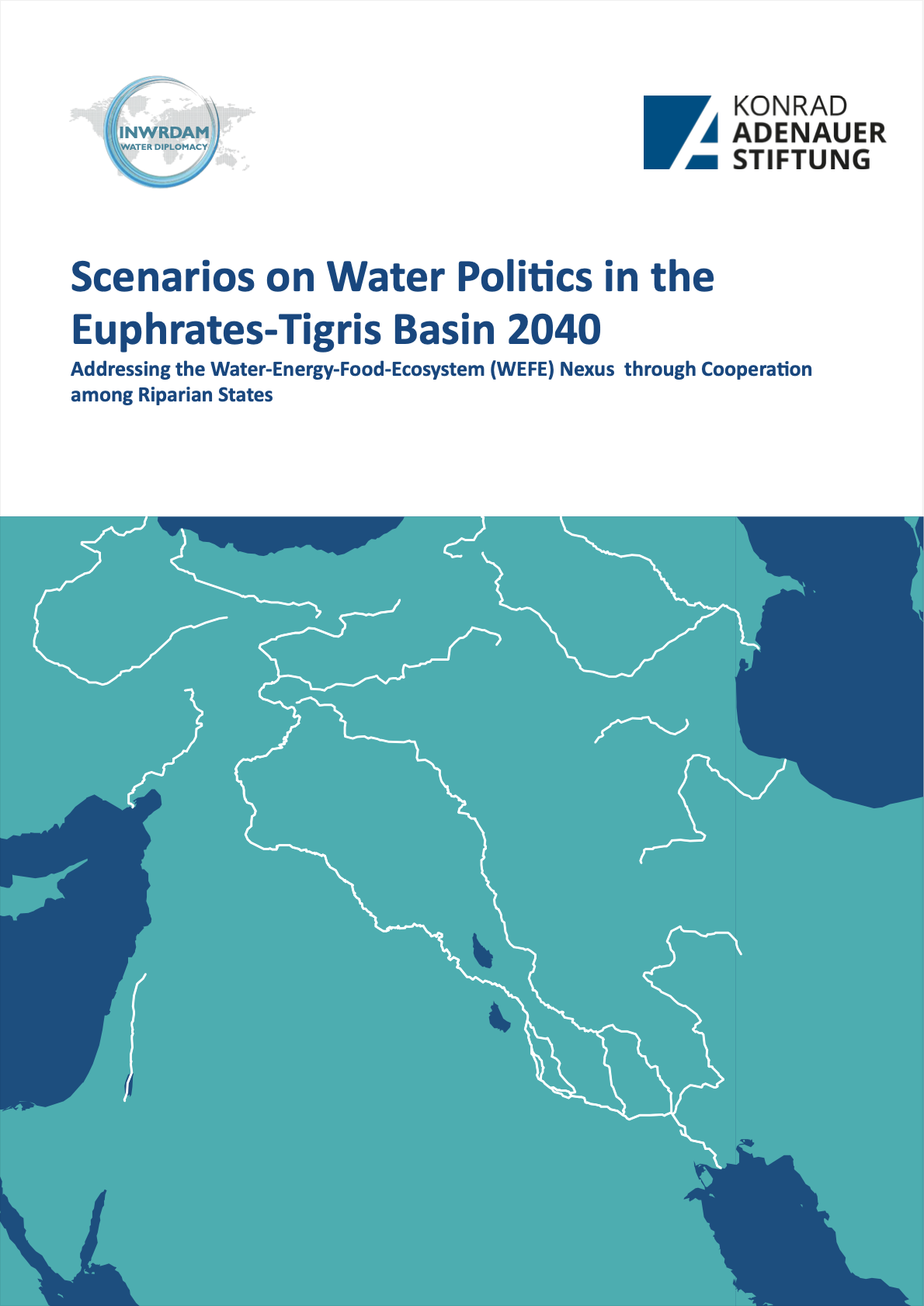
The Euphrates-Tigris basin, encompassing regions of Turkey, Syria, Iraq, and parts of the Tigris basin within Iran, has experienced heightened diplomatic strain since the 1960s due to unilateral irrigation activities impacting river flows, and compounded by geopolitical discord. Cold War affiliations, with Turkey’s NATO alignment opposing Syria and Iraq’s USSR associations, infused additional complexity into water disputes. And the Kurdistan Workers’ Party (PKK) issue and territorial claims further fueled discord among riparians until the mid-2000s. The 1980s and 1990s marked peak conflict, with water being utilized as a strategic leverage. Notably, a 1987 accord between Turkey and Syria addressed water allocation and PKK tensions, illustrating the intertwining of water management with broader geopolitical issues.
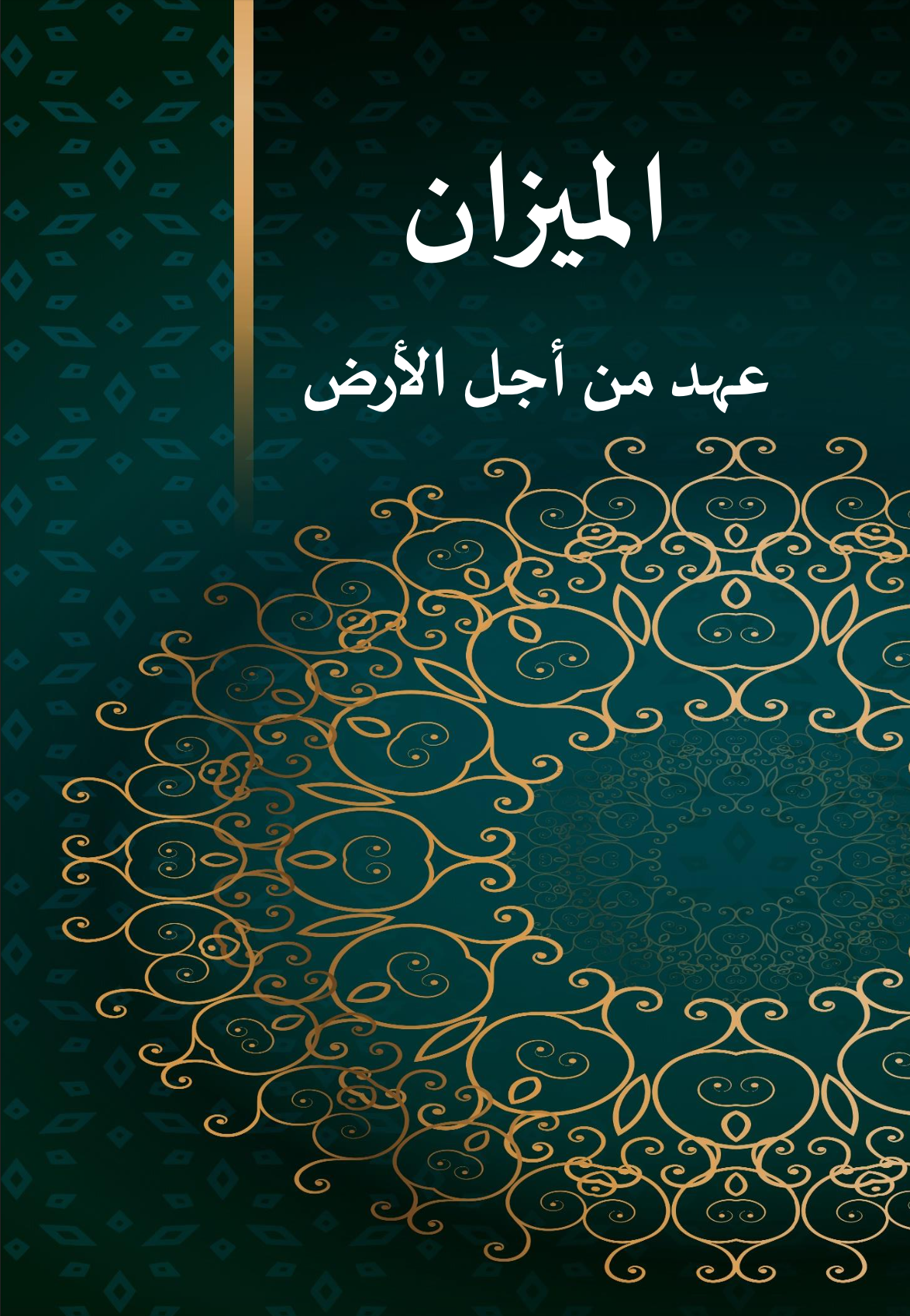
The Covenant presents an Islamic perspective on the environment in an effort to promote local, regional and international action to combat the triple planetary crises identified by the United Nations as climate change, biodiversity loss and pollution. It is a global endeavor to engage Muslims at all levels of society in developing and embracing this call. The Mizan-Covenant for the Earth is a re-articulation of the principles governing the protection of nature in a form that meets today’s challenges. It examines the ethics underlying the social fabric of human existence and asks how they can be revived today while working in harmony with the heartbeat of the natural world. Environmentalism is deeply rooted in the very fabric of Islam. It is about personal conduct and how it manifests itself in our relationships with others, as well as about taking into account our relationship with the natural world and other living beings. These principles evolved from the foundations laid by the Prophet Muhammad into a set of rules and institutions that demonstrated an expression of a life that was truly inclusive. It was based on the Qur’an and can be distilled into three categories: encouraging the common good, preventing wrongdoing, and acting in moderation at all times: (And establish weight in justice and do not make deficient the balance), Ar-Rahman 9 The Most Gracious (1) has taught the Qur’an (2) has created man (3) has taught him eloquence (4) the sun and the moon move by precise calculation (5) and the stars and the trees prostrate (6) and the heaven He raised and placed The Balance (7) That you do not transgress within the balance (8) And establish weight in justice and do not make deficient the balance (9) Othman Lawlen, Fadl Khalid, et al. Islamic Foundation for Ecology and Environmental Sciences, Birmingham, UK.
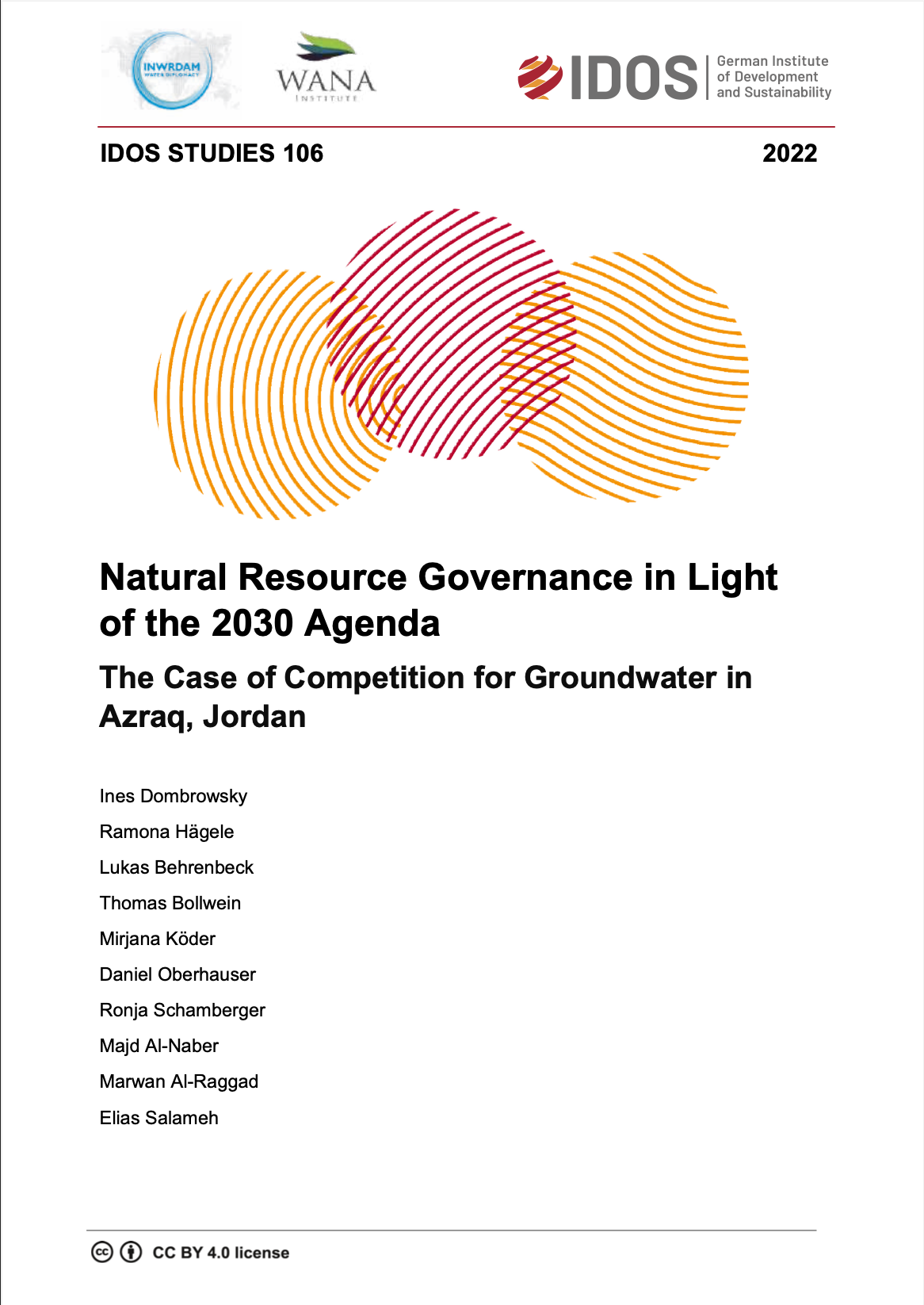
This study was made during the 55th Postgraduate Training Programme of the German Institute of Development and Sustainability (IDOS) (formerly German Development Institute / Deutsches Institut für Entwicklungspolitik (DIE)) in the “Growth, Environment, Inequality, Governance: Implementation of the 2030 Agenda” research project funded by the German Ministry for Economic Cooperation and Development (BMZ).
We thank our Jordanian local field guides, translators and transcribers who made this research possible.
Dr Annabelle Houdret, Dr Waltina Scheumann, Dr Tina Zintl, Dr Anita Breuer, Dr Markus Loewe and Dr Srinivasa Srigiri at the DIE have provided valuable ideas and suggestions for our research. We would like to express our tremendous appreciation to the last three colleagues named for critically reviewing the manuscript and suggesting substantial improvements. Special thanks also go to Anita Breuer for her ongoing help in setting up and interpreting the social network analysis.
We thank Dr Regine Mehl and Andrea Herder for their logistical and moral support throughout the research. We are additionally grateful for the support from Prof. Dr Anna-Katharina Hornidge, Prof. Dr Imme Scholz and Margret Heyen of the DIE Directorate during the COVID- 19 pandemic.
Finally, we specially thank our interview partners who wholeheartedly welcomed us and contributed their time and indispensable insights to this study.
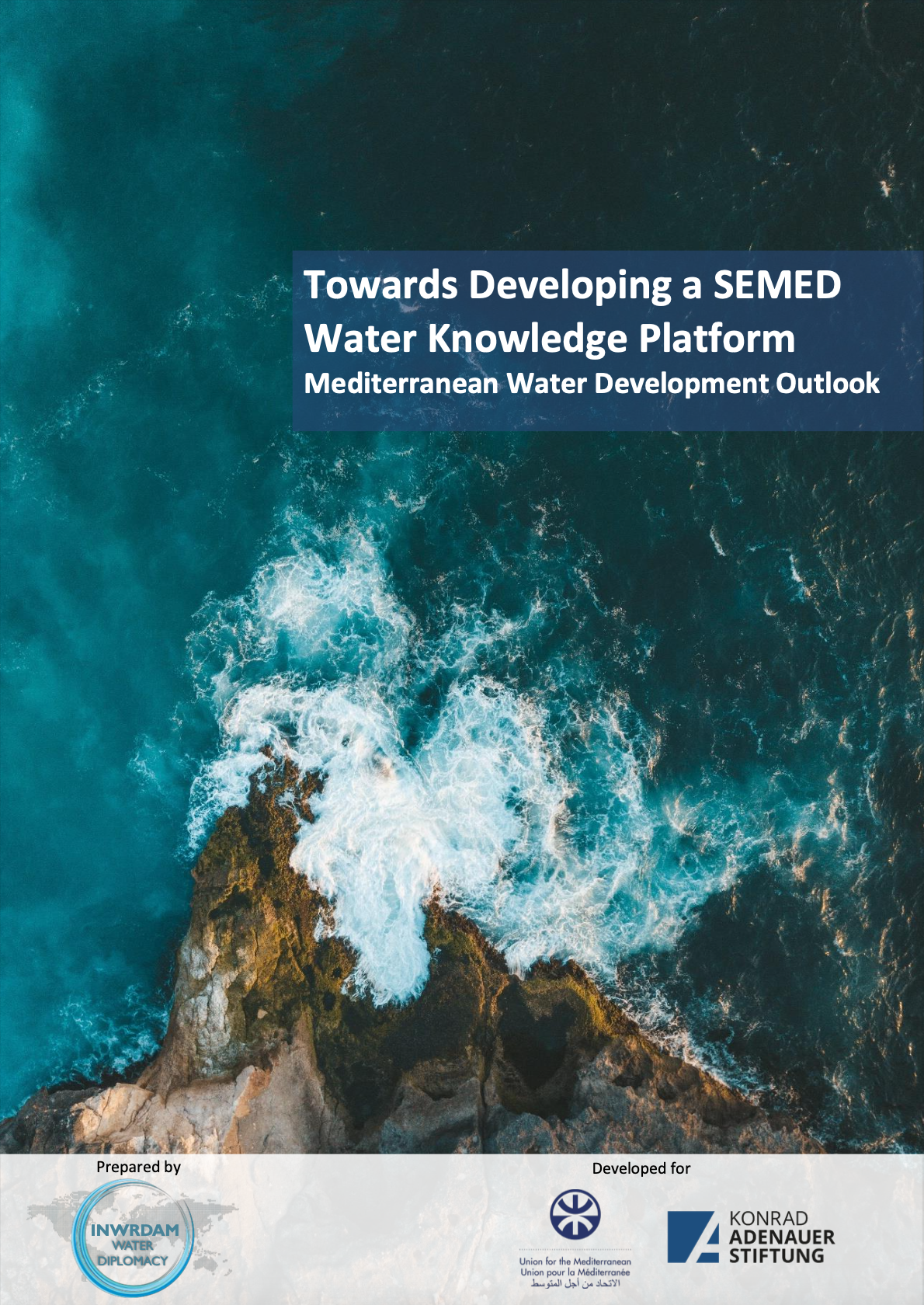
At the cross-roads of three continents, the Mediterranean region is one of the most historic, culturally rich and diverse regions in the world. Endowed with unique geographical, ecological and geopolitical features, it benefits from the continuous exchanges across peoples and territories.
In a constantly changing world, the Mediterranean faces serious natural and human-made challenges, including water scarcity, population growth, migration, industrialization, urbanization, pollution, and climate and other environmental change, along with the proliferation of energy-intensive lifestyles.
These issues entail a rather blurry picture for the present and the future of the Mediterranean region, posing threats also to its water security. Not far from the Mare Nostrum, the MENA region (Middle East and North Africa) extending, south of the Mediterranean Sea, from Morocco to Egypt and, east of the Mediterranean Sea, from Yemen across the countries of the Arabian Peninsula all the way to Syria is also facing a particularly alarming situation of water, making it as one of the most water insecure regions of the planet. Annual renewable water supplies in MENA are approximately 620 billion cubic meters (BCM), compared to Africa’s almost 4000 BCM, Asia’s 12,000 BCM, and a world total of approximately 43,000 BCM. In 2015, the World bank estimated that MENA’s per capita annual water availability is estimated on average of only 1,200 cubic meters, around six times less than the worldwide average of 7,000 cubic meters which is below the amount needed to prevent a significant constraint on socio-economic development, making the region the most water stressed in the world.
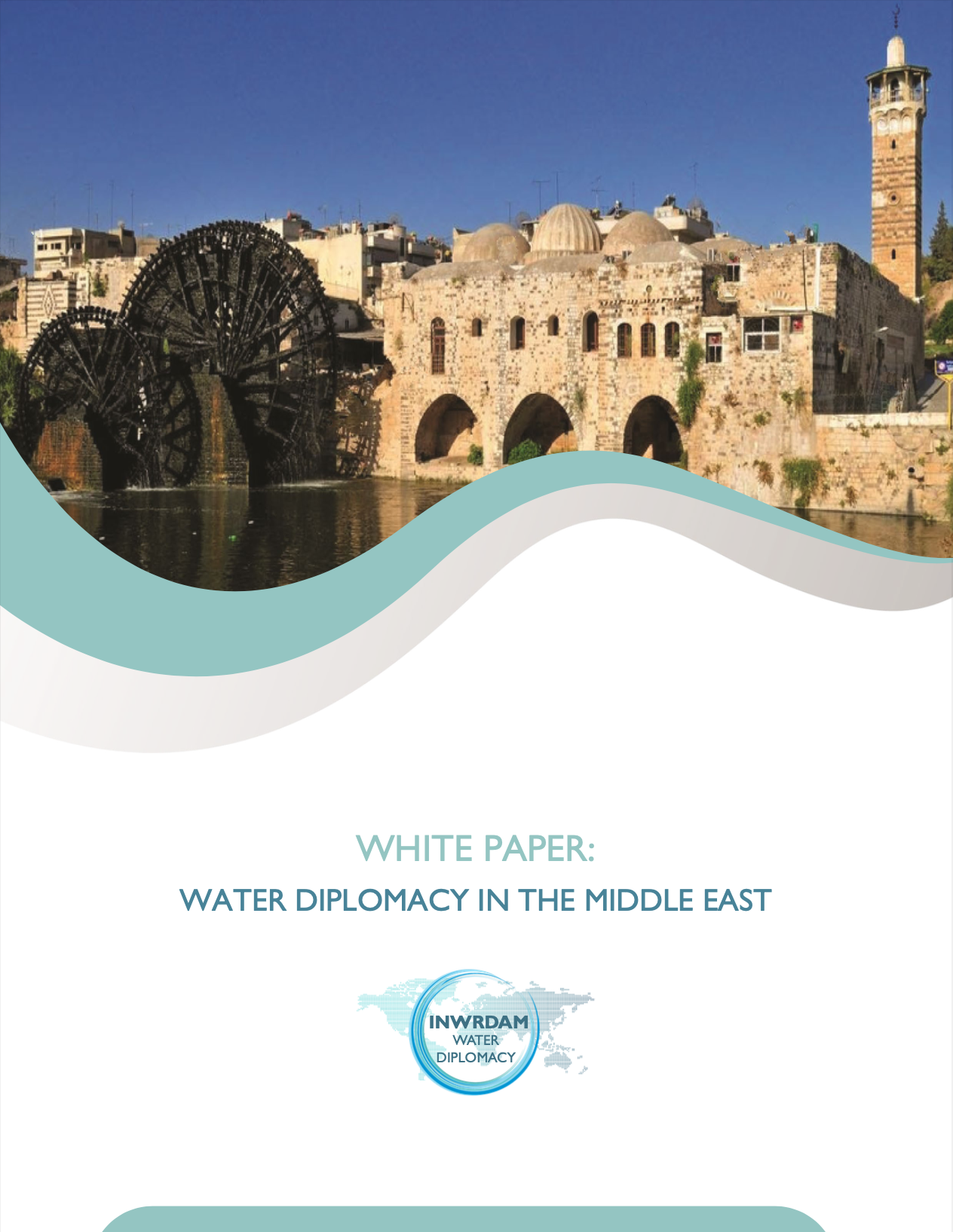
This White Paper is based on research, analyses and interviews with key water diplomacy experts, including representatives of the Blue Peace Management Committee.
We would like to acknowledge the support of the key experts: Prof. Dr. Ahmet Mete Saatçı, Eng. Maysoon Zoubi, Dr. Hakam Al-Alami, Dr. Zeina Majdalani, Eng. Maha Rasheed Alzaidi, Prof. Dr. Elias Salameh and Prof. Dr. Nadheer Ansari.
This paper was funded by the Swiss Agency for Development and Cooperation (SDC) as part of the activities of the Blue Peace initiative in the Middle East (BPME).